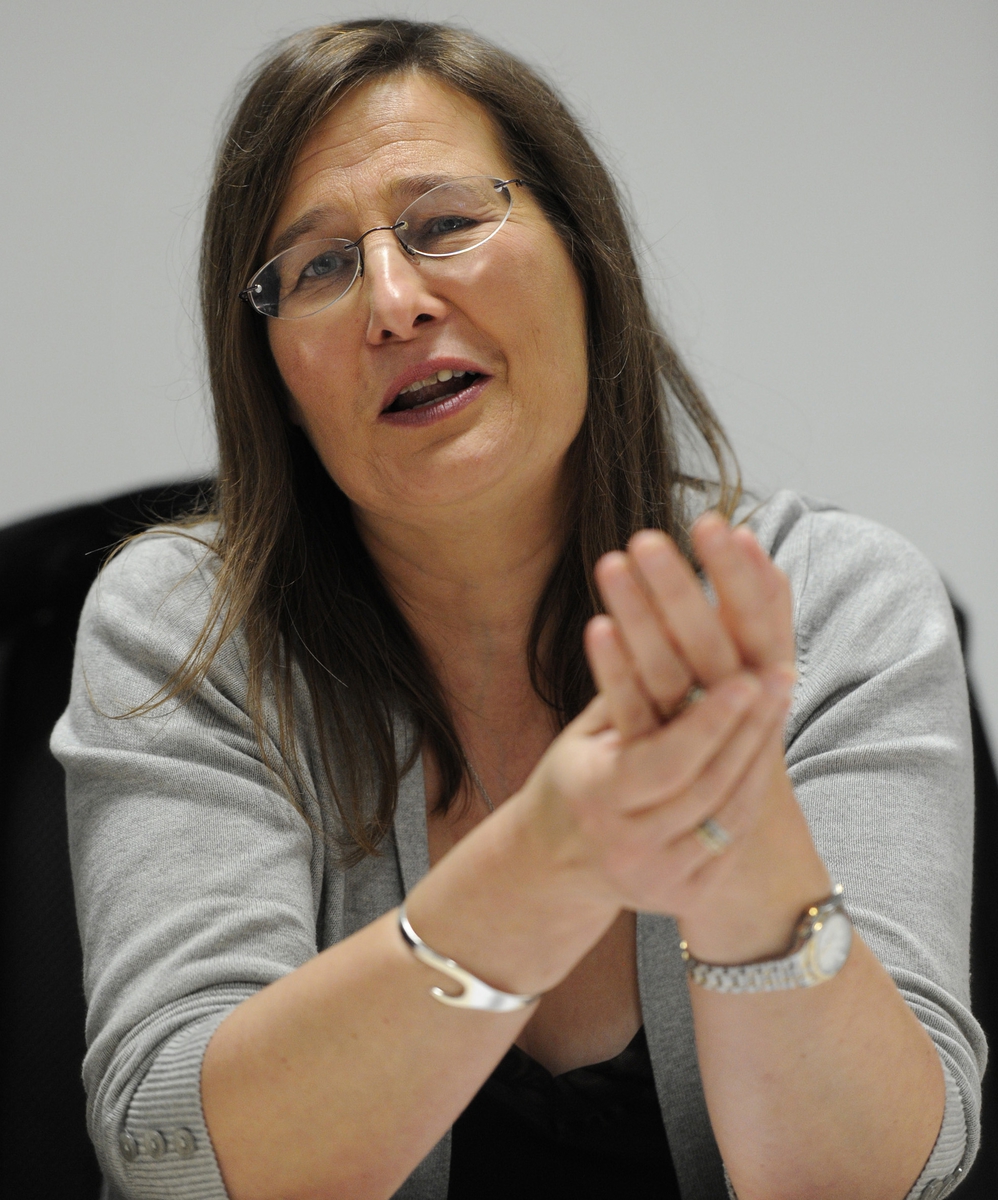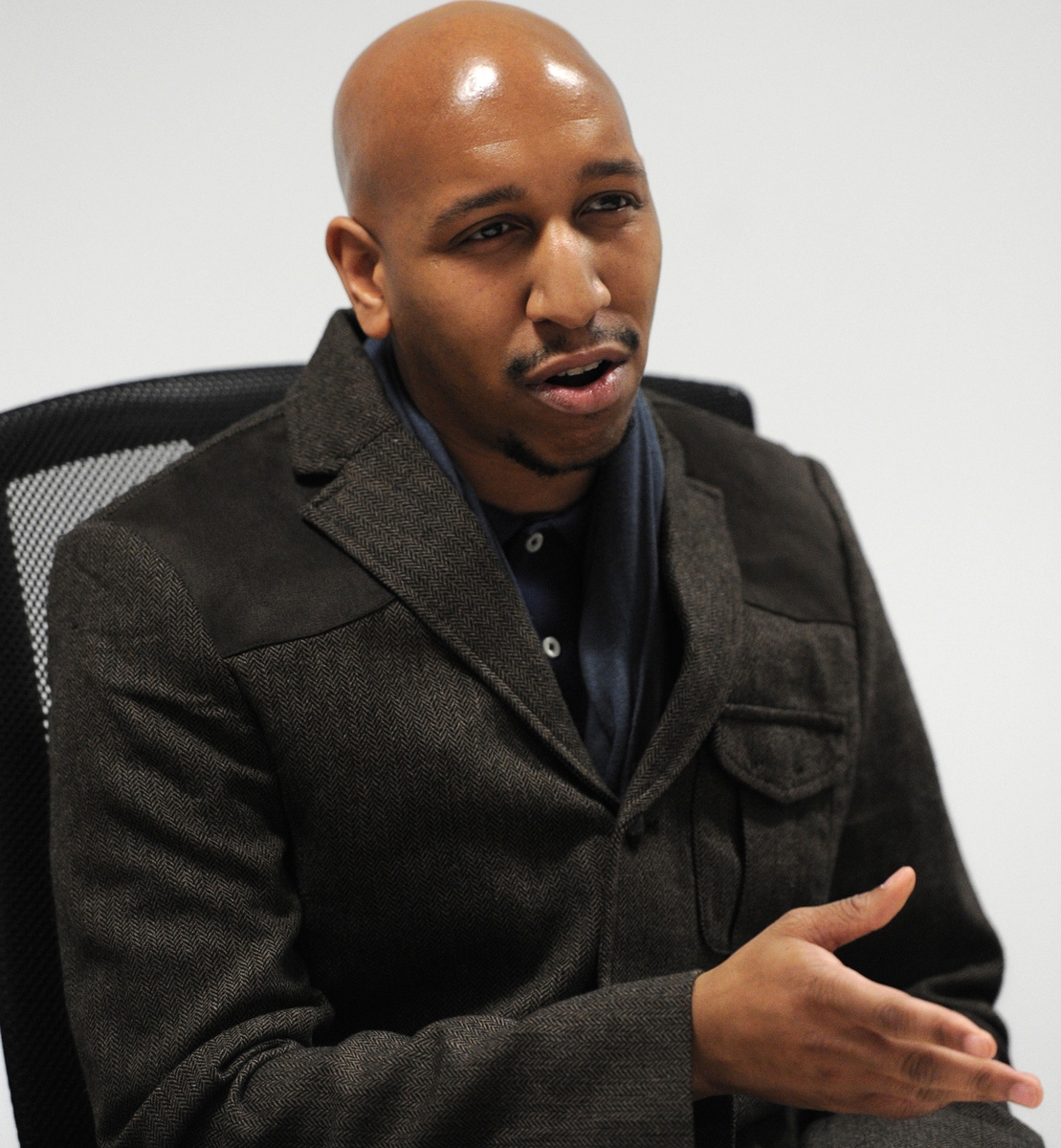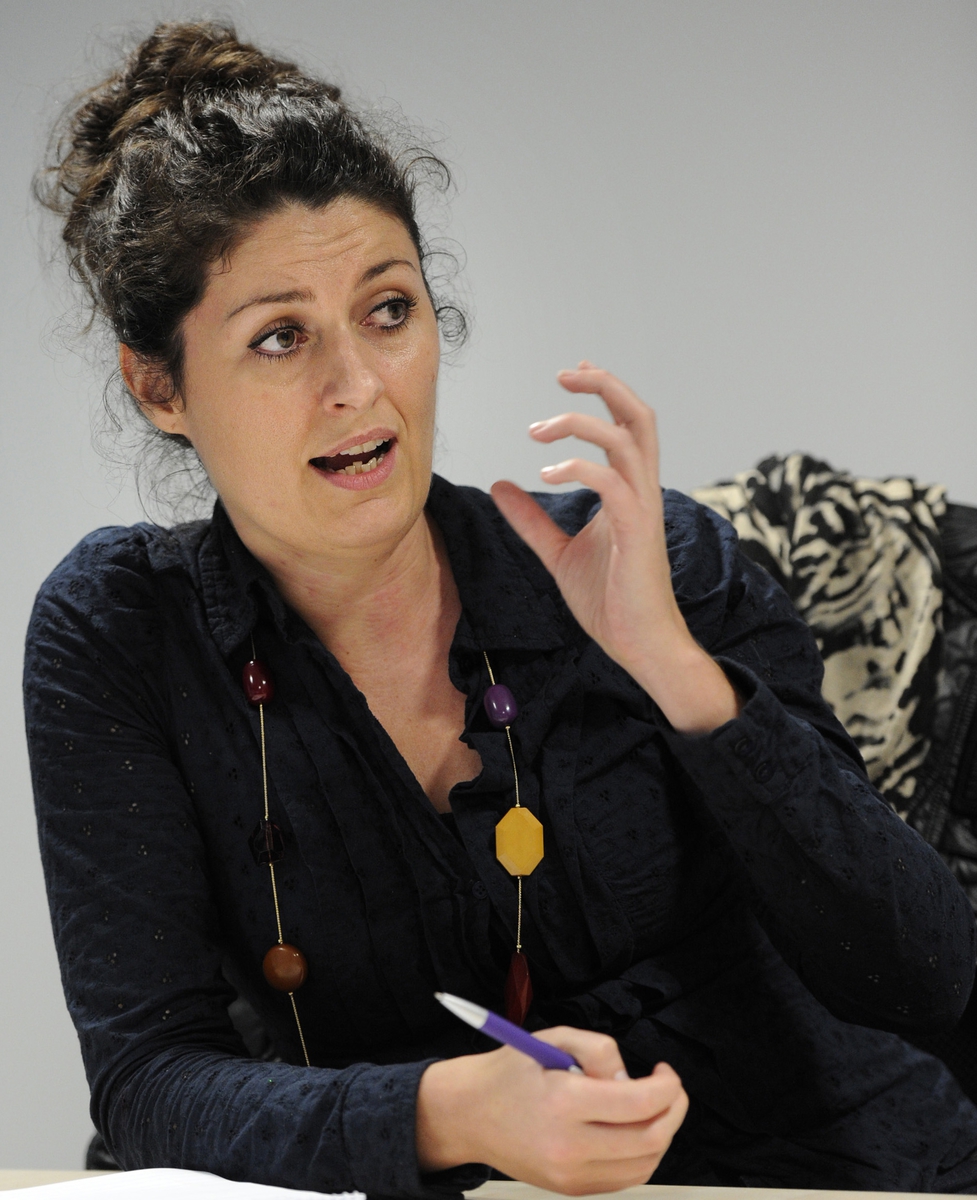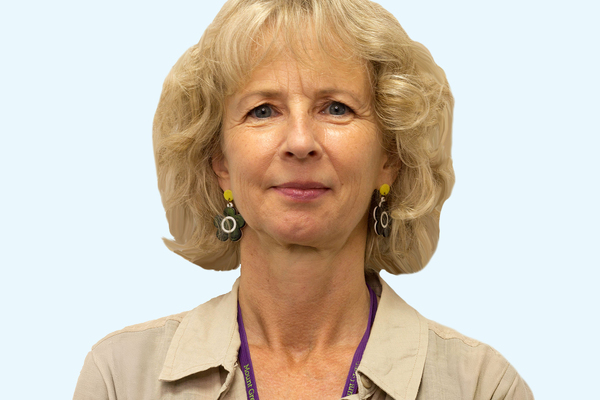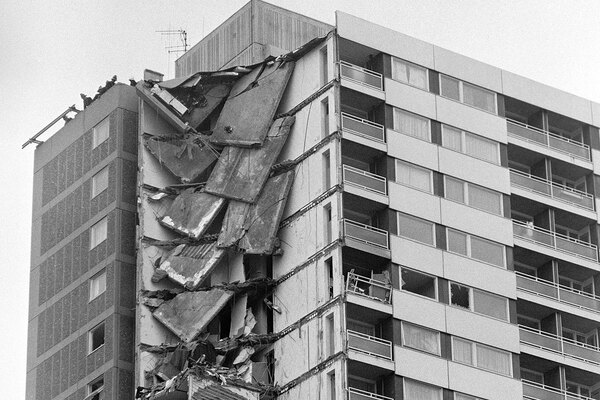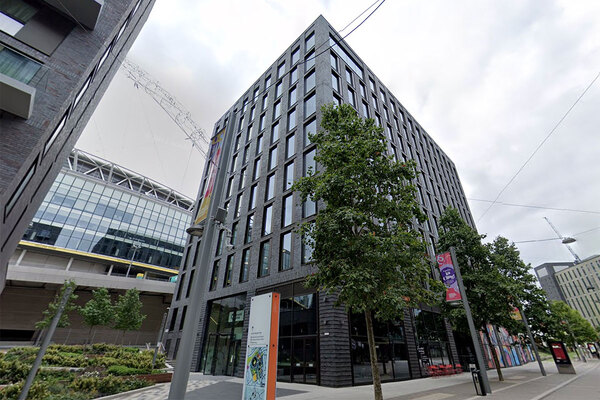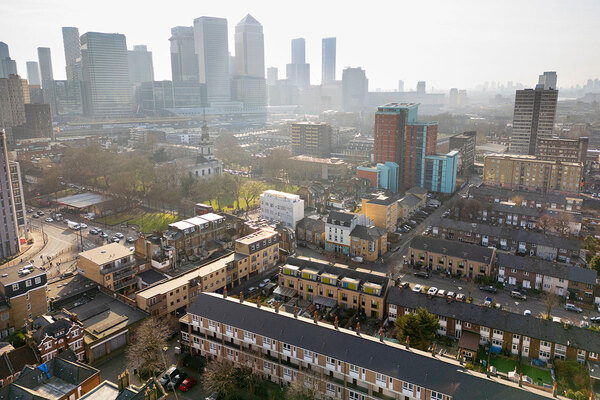Telling it like it is
Boredom, social inequality, education, lack of opportunity. Were these the causes of August’s English riots? Ahead of next month’s publication of The Riot Report, members of the study’s sounding board give their verdicts to Lydia Stockdale
At first everyone wanted to know how and why rioting and looting spread across cities in England in August. Analysing the motivations of those who were involved became the way people came to terms with the worst civil unrest seen in a generation - then, within just a few short months, they began to forget.
Housing professionals and other front line workers cannot put the events of last summer behind them quite so quickly, however. They are the ones left to deal with the underlying social problems that led to the criminal damage, theft and violence.
Following the riots Inside Housing, the Chartered Institute of Housing and the National Housing Federation launched a study to identify steps that can be taken to help prevent similar disturbances ever happening again.
We formed a sounding board of 11 individuals working in various fields including housing, teaching, social work, community and youth work, to ‘sense-test’ The Riot Report.
In advance of its publication on 10 February, we gathered a handful of these experts to have a frank and open discussion about why up to 15,000 people - many of them young people - became involved in the riots as they spread from London to Manchester, Birmingham and beyond.
We asked them what can be learned from the outcomes of the many and varied social policies and initiatives that have been implemented over the years. Which policies do the sounding board members believe have improved the lives of individuals and communities - and which have, in actual fact, only made situations worse? Read on to find out what they said.

Ruth Cartwright
Manager of the British Association of Social Workers, England
On inequality: ‘Whatever the motivations [of those who were involved in the riots] were - getting back at the “feds”, deprivation, going through hard times, loss of education maintenance allowance, or pure opportunism - they all felt they had nothing to lose. It struck me as sad that people felt society had nothing to offer them, so maybe their only chance was to take.
‘I think the root cause of it lies with inequality. Over the past few decades, under whatever colour of government, our country has become more unequal. The “haves” have a lot more, there’s still a significant bunch in the middle, and then the poor are getting poorer.’
On family intervention projects: ‘I was very concerned about anti-social behaviour orders in the beginning [they were first used in the UK in 1999] - although they are civil orders, breaking them is a criminal activity. But as ASBOs went on, politicians started to realise that things are a bit more complicated and some good stuff like family intervention projects came out of that.
‘On the one hand you could think FIPs are blackmailing families - social workers and other agencies that have been trying to engage with them end up forcing them into FIPs. It’s not the way you’d want it to happen, but it did seem to work for some families. Now David Cameron has spoken about the 120,000 “troubled” families [in the UK that need to be “turned around”], and I think he’s going to reinvent the FIPs that were
mostly doing quite well anyway.’
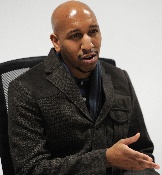
Daniel Morris
Youth worker, founder of Urban Sport Life, a social enterprise that runs community sports activities, and director of Leaders Reflect Solutions, an entrepreneurial advocacy for young people
On why young people looted: ‘I’ve worked with young people in Clapham Park in Lambeth, south London, for eight years. I wasn’t there at the time of the riots. I’d taken some young people to Denmark. When a list of places where people were going to riot came through on the BB [Blackberry] their first reaction was to say, “I wish I was there”.
‘I was able to take them out of their environment, but they said if they’d been there they’d have gone out and taken whatever they could because they don’t have it. Some young people said, “If I take a TV and I sell it, it means I have food in my fridge”.’
On gangs: ‘The young people I work with are very able, and they’re co-dependent. They need to be taught to be independent.
‘The papers say young people are involved in gangs, but I’ve found they see themselves as family. It’s become that way organically, because they see that nobody understands them. Society has excluded them.
‘When you have the prime minister saying there’s a war on gangs. young people [hear that as] “you want to [have a] war with me”, and they’re not afraid of that. Young people feel they are at war.’
On initiatives that work: ‘I was a youth worker when the Clapham Park Project, part of the Labour government’s regeneration new deal for communities programme [which ran from 2001 to 2010], was running. The organisations involved took people from the community, like me, and developed their skills. People could see me mature into a person who could help and support them. It was really good.
‘We had a forum where people from schools, housing and other organisations would sit down and listen to me and my colleagues who worked on the ground. You usually get a top-down approach, but they listened to us because the children and parents listened to us. We could then identify the issues and look at what resources everybody had available and say, “this is what we need and this is who we need to work with”.’
On initiatives that don’t work: ‘Organisations come into areas, do some consultation, come up with some masterplan then implement it, and don’t then go back to the residents in the area they were supposed to make the changes for.
‘For things to work all organisations need to be in on the loop, if that loop is broken organisations have their own agendas. People become frustrated at this. They think, “before I saw you together, we had activities going on, now we don’t see you together, nobody comes knocking on my door anymore”.’

Gaynor Duffy
Magistrate and teacher at the New Charter Academy in Ashton-under-Lyne, Greater Manchester
On education: ‘I recently completed a masters degree during which I discovered a huge number of children who receive free school meals have been given a special educational needs status, including being labelled as having behavioural or social problems.
‘I found there are cultural differences between working class children and middle class children. Academics have highlighted that children from different social economic backgrounds use different language and behaviour, but these differences haven’t been recognised in the education system, giving rise to the number of children being given SEN labels in recent years.
‘I’m very upset about this labelling. I spoke to a child yesterday who felt he couldn’t write because he had one of these labels. I had another who was convinced he couldn’t control his anger because he’d been sent to anger management classes - these children are being disempowered.
On class: ‘Nobody will say these kids are “working class” - if we hide class there’s no excuse for them. But the working class is there, and you can’t say “we’ve all got the same opportunities”, because we haven’t. All of a sudden, working class is an “underclass”.’
On opportunities: ‘Thirty years ago we had 25 factories [in our area]. Those children who did not want to go through education could work in them - but they’re not there anymore. Young people have lost a sense of purpose, they’re saying, “What’s the point in education, there’re no jobs out there anyway”.
‘I gave some really tough lads in my old class little “manager” jobs, and I ended up having them teach primary school kids and they were brilliant. Whether or not the jobs are out there, within our communities we’ve still got to give young people some sense of purpose.’

Julie Fawcett
Housing association tenant and director of Stockwell Park Community Trust
On why people rioted: ‘It was summer holidays, there were no parents around, there was no food, there was no money, teenagers don’t go into the summer projects - they’re for primary school children - so they were just on the street. It was opportunism, they were bored. They were quite clearly sticking two fingers up at authority, particularly the police.’
On the police: ‘After the Brixton riots in 1981 we had the Scarman Report, which said the riots were not the fault of the black youth, it was the fault of the police - they did not understand people and they came in hard and heavy. Well, I could go on forever about the way policing has been done recently.
‘As far as I’m concerned, [the riots] suited the police. They proved a point about how disgraceful young people are and shut down the people who complained about policing.’
On education: ‘I was talking to a 15-year-old kid the other day who had been sent out into the world without knowing what Norway was. He said, “Norway, where is that? It’s north of Manchester?”.
‘We have incredibly bright working class, “underclass”, young people who are stuck in this slushy, mushy, female-oriented, bed-wetting, shandy-drinking load of old crap. There is no backbone and there is nobody fighting on our behalf. Whenever we do we’re considered to be difficult and militant, and usually quietly moved out of the building.
‘I ask you, where’s the nearest council tenant politician? We used to have a dustman who was one of our councillors; you would not get that now.’
On frustration: ‘The adults I speak to ask young people, “why did you go and spoil it? Why did you go and loot and burn? Why did you not use your brain to target what you were angry about? Because you would have had every single adult behind you”.
‘We are absolutely fed up. The government doesn’t like us, the local authorities don’t want us. It is that feeling of not being wanted - that kind of disaffection can cause anger to bubble up, explode and ripple out. Luckily I have the education to articulate this, but when you don’t it turns to violence.’

Carla Keegans
Head of involvement and policy development, City of London
On the breakdown of local strategic partnerships: ‘The imperatives or resources for local partnerships, which brought councils, other agencies and residents together, have changed. I didn’t agree with the top-down management style of some LSPs and the rigid performance indicators that were there, but they were long-term partnerships.
‘There’s been a quick unravelling of 10 years’ worth of co-operative working in some areas. Budgets have been cut and there are no longer the resources available to work in those partnerships.’
On working with communities: ‘Residents were expected to be involved in every stage of LSPs - if they don’t exist in the same way anymore, how will residents be involved in decision-making? Individual organisations need to ensure they’re rooted in the areas they’re working in. If we’re not working with people we’re going to fall in the trap of making decisions nobody is involved in. Trust can be broken so quickly. If we make mistakes we have to be honest, and if we can’t do something we have to say why.’
On housing’s role: ‘The housing sector is doing a lot - without being asked by government - that is not recognised. If we pull out of what we’re doing - and many landlords are being forced to make choices - who is going to step up and do a lot of the stuff we’ve taken on out of necessity?’
On regeneration: ‘I agreed with some of the approaches New Labour took towards urban regeneration because it wasn’t just about bricks and mortar, it was about the people. I suppose looking back is with rose-tinted glasses because there’s no regeneration strategy now. ‘National social policy seems to now be about picking up the pieces of the increasingly severe effects of an economic system that doesn’t need millions of people to be productive.’
